7 Great Vermont Colleges for Skiers
Though it’s a small state, Vermont has more than two dozen colleges and institutions of higher learning. And with more than 20 ski areas, you’re never far from the slopes. But if you’re really serious about skiing or riding, consider what some of Vermont’s colleges and universities have to offer.
With everything from undergraduate degrees in resort and hospitality management to guide training to classes that teach you to design and build skis, these colleges and universities can help turn a passion for skiing or riding into a promising career.
And some even have their own ski areas. However, in mid-April, 2020, Chancellor Jeb Spaulding made this announcement that three of the campuses (the two Northern Vermont University campuses and the Randolph campus of Vermont Technical College) might close. The announcement was met with protests around the state and on April 22, Spaulding withdrew the proposal to close the campuses.
In the meantime, here’s what these truly cool schools have been offering:
Castleton University
“I really didn’t know what I wanted to do after I graduated from high school,” says Amy Laramie, now 33. “I knew exactly what I wanted to do,” says her colleague Jordan Spear, 31, who grew up helping his parents run Brantling, a small ski area in western New York state.
Today, thanks to an innovative local college program, Laramie and Spear run the communications and marketing departments at Killington Resort—the largest ski area in the East and winner of the National Ski Areas Association’s 2019 award for best overall marketing campaign.
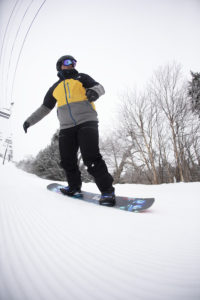
Their pathways? Instead of attending a traditional liberal arts college, both Laramie and Spear enrolled in The Killington School of Resort Management, at the time a division of Green Mountain College.
The three-year program, now run by Castleton University, culminates in a bachelor of science degree in Resort & Hospitality Management. “With a real need for employees at Killington and Vermont’s 20 or so other ski resorts, we have a 100-percent placement rate,” notes Rob Megnin, who retired as director of marketing, sales and reservations at Killington in 2019 and is currently an executive in residence at Castleton.
Megnin, sitting in the program’s classrooms just off the slopes of Killington, explains how it works: “For the fall and spring trimesters, students take classes at the main Castleton campus. Then, during the winter trimester, they do “co-operative experiences”—paid, on-the-job training in various departments at Killington Mountain Resort—and live in a dorm just off the mountain’s access road.
Laramie ended up spending her co-op trimesters working the front and then the back of the house at the Wobbly Barn, the Killington-owned bar, restaurant and night club. “I did everything from serving to managing payroll and inventory,” she recalls.
Spear worked in guest services and ticketing. As a student, he developed an innovative digital system for the resort to log and track lost items. “Working in guest services I realized that if someone lost something, you’d have to call Lost & Found at each of our base lodges,” he remembers. Spear’s digital logging system solved that problem.
Not long after graduating, Spear got a call offering him a newly-created position as manager of guest services. From there, he then moved into marketing. When Megnin retired in spring of 2019, both Laramie and Spear were promoted and invited to join Killington’s executive leadership team.
While the draw of being able to ski and ride for free all winter, get paid at the same salary levels as full-time employees, and earn a B.S. in three years was strong, what Laramie and Spear appreciate just as much are some of the traditional liberal-arts classes they also took.
“I think other classes, such as the courses I took on the environment, were really valuable as they helped me think differently about what I do,” says Spear.
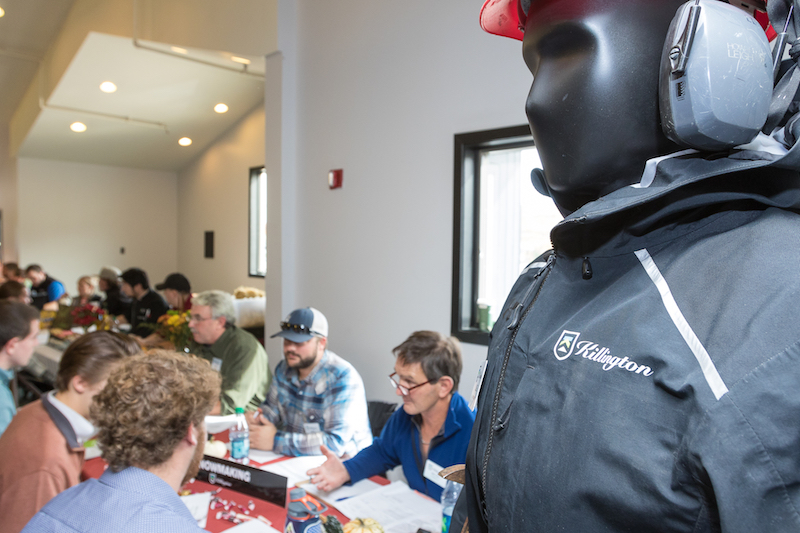
“We had a great religion class taught by Doug Weber, a rabbi. That class really helped me understand the many different cultures we see here at Killington, from Muslim women who ski in full burqas to the groups of Hasidic Jews who often come here each fall,” says Laramie.
“But perhaps the best part of that training is that I am a people person, and it was great to find a career that’s all about helping people have a good time,” she adds.
Home Mountain: Killington. Drive Time from Castleton Campus: 35 minutes from main campus, 5 minutes from on-mountain dorm. Enrollment: 1,900. Cool Class: Winter “co-op” trimesters where students work and train on-the-job at Killington Resort and get paid while working toward a three-year B.S. degree.
Middlebury College
As one of just a handful of colleges in the U.S. that owns its own alpine and Nordic ski areas (Dartmouth is the only other in New England), Middlebury College in Middlebury is a true skier’s school. Its Division 1 alpine and Nordic teams have turned out many World Cup racers and it is also one of the top-ranked liberal arts schools in the country.
Just 15 minutes from campus is the 120-acre Middlebury College Snow Bowl and Rikert Nordic Center, with more than 55 kilometers of trails, including one that leads to a cabin once inhabited by famed poet and former Middlebury professor Robert Frost. Rikert also boasts one of the largest snowmaking systems of any Nordic center.
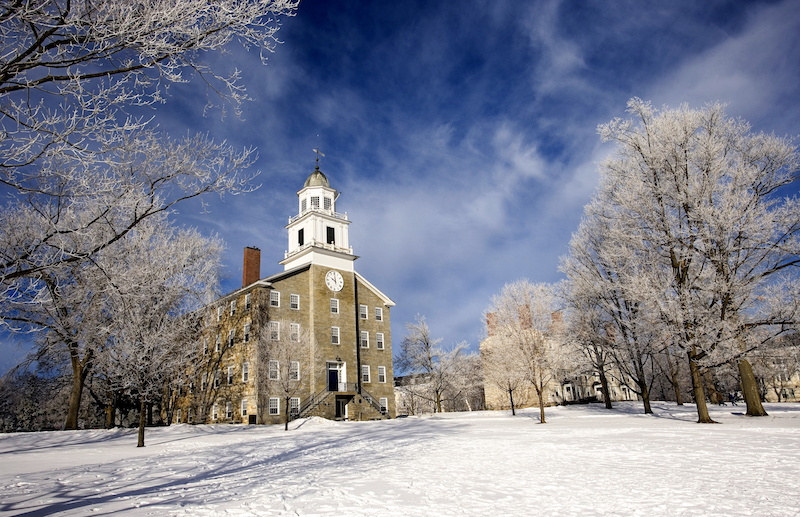
The Middlebury College Snow Bowl’s ski patrol is comprised entirely of student volunteers, and joining the ranks is no easy task. Student volunteers must earn their EMT certification before joining the ranks and take a 120-hour semester-long training course, offered each Sunday afternoon during the fall semester by fellow patrollers.
During J-term, (a January period of four weeks) students can take elective courses in entrepreneurship.
And “Febs,” students (who enroll in Middlebury’s staggered semester program and graduate in February), ski down the Middlebury College Snow Bowl’s slopes in their caps and gowns for graduation ceremonies. middlebury.edu
Home Mountain: Middlebury College Snow Bowl; Drive Time from Campus: 15 mins. Enrollment: 2,500. Cool Class: Ski Patrol Training.
Northern Vermont University
At the Lyndon campus of Northern Vermont University, you can get a B.S. in Outdoor Education, Leadership and Tourism with a concentration in Mountain Resort Management.
The program has been around since 1973 and has a 90 percent-plus job placement rate for graduates. Students get hands-on training in lift operations, snowmaking and every aspect of resort management (from front-of-house food service to snowmaking to HR) at Burke Mountain Resort and other ski areas. And many students graduate with certifications that get them jobs in the ski industry straight out of school.
Sophomores start the program with a two-semester practicum where they shadow managers and leaders at several resorts across Vermont and New Hampshire—Smugglers Notch, Stowe, Jay Peak, Burke and Cannon Mountain—in every aspect of resort management. The following year, they embark on an internship. Students are placed all over the country doing things such as learning to groom snow after a massive storm in Lake Tahoe or shadowing a heli-ski guide at a remote outfit in Alaska.
Among the certification programs offered are Outdoor Emergency Care—the industry standard for ski patrollers, and the state of Vermont Lift Apprentice Level I test, which prepares students for highly sought-after jobs as lift mechanics—with an average starting salary of $50,000 per year.
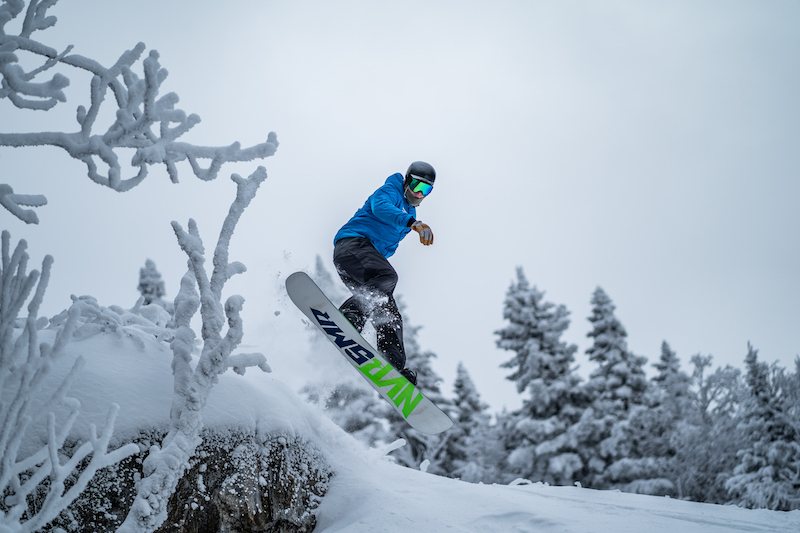
Students can also take a AIARE Avalanche Level I or American Mountain Guides Association Single Pitch Instructor course and graduate with the skills to start a career as a mountain guide, or intern with Burke Mountain Resort’s ski patrol and take on a paid role there upon graduation.
Each fall, students in the Mountain Resort Management track attend The New England Summit, an annual conference of Northeastern ski areas, where the latest gear and innovations in mountain operations are presented and discussed by regional ski resort leaders.
Notable graduates of this major include Steve Charest, a mountaineering guide and co-owner of Burlington’s climbing center, Petra Cliffs. And don’t miss the annual NVU Rail Jam at the Lyndon Outing Club—a chili cook-off fundraiser where students build the rails and features. northernvermont.edu
Home Mountain: Burke Mountain Resort and Lyndon Outing Club. Drive Time from Campus: 24 mins. (NVU’s Lyndon campus is also one hour from Jay Peak and just 8 minutes from the Lyndon Outing Club’s own ski hill); Enrollment: 1,759. Cool Class: Two-semester practicum, where you get to try work in every aspect of the ski industry and be mentored by some of the top movers and shakers.
Sterling College
Sterling College is known for being a hotbed of ecological and hands-on learning. Since 2013, the school has fielded two collegiate sports teams: Nordic skiing and The Sterling Skyrunners, a trail, mountain and ultrarunning team—the first collegiate team of its kind in the United States. Nordic racers here train on the more than 100 kilometers of ski trails at the Olympic training center at nearby Craftsbury Outdoor Center, and Craftsbury staff coach the team.
You can even take Advanced Nordic Skiing, a course designed to introduce students to advanced techniques for racing, backcountry skiing and more as well as how to write about the sport.
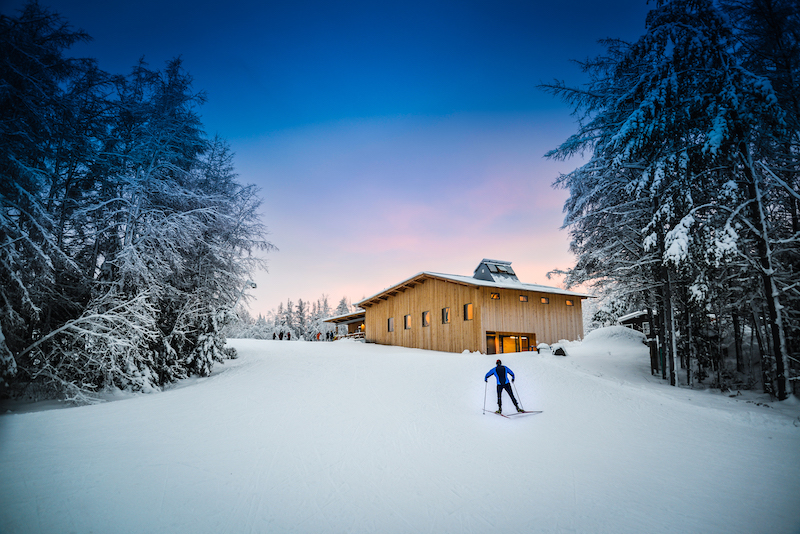
Plus, each year since the school’s founding, Sterling students have partaken in a four-day, three-night wilderness camping experience involving a 25-mile group trek through mountainous terrain at a different location in Vermont. sterlingcollege.edu
Home Mountain: Craftsbury Outdoor Center. Drive Time from Campus: 6 mins. (the college is less than 45 minutes away from Jay Peak). Enrollment: 650. Cool Class: Advanced Nordic Skiing
St. Michael’s College
At St. Michael’s College in Colchester, students can take a year-long Instructor Training Program and Mountain Leader Course that involves a mix of classroom time and work in the backcountry. Instructors-in-training then focus on one of five disciplines—on-land travel, climbing, paddlesports, mountain biking or skiing and riding. Ski and ride instructors complete a strenuous year-long certification process that includes backcountry skills like partner rescue, avalanche awareness and navigation to guide their peers. smcvt.edu
Home Mountain: Sugarbush. ($85 season pass). Driving Time from Campus: 1 hour. Enrollment: 1,900. Cool Class: Wilderness Program Instructor Training and Mountain Leader courses.
University of Vermont
Burlington’s University of Vermont may be best known for its Division 1 ski teams, which have turned out Olympic-level alpine and Nordic ski racers as well as biathletes. What’s less known? One its most popular courses is the semester-long “Ski Area Management.”
Part of the University of Vermont’s Rubenstein School of Environment and Natural Resources’ Parks, Recreation & Tourism major, the course has been taught by David Kauffman for more than 20 years.
Five days of field trips offer students a behind-the-scenes look at every
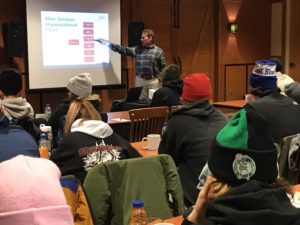
aspect of resort operations at Stowe, from human resources to snowmaking leading up to the regular spring semester. The class also teaches students about ski area marketing, the history of the ski industry, the permitting process, terrain park design, industry trends and more.
This year, course alumn Molly Mahar, president of the Vermont Ski Areas Association, will give a guest lecture about business strategy for Vermont’s alpine ski areas. Kelly Pawlak, president of the National Ski Areas Association will also be a guest lecturer.
Though students can’t major in this discipline they can graduate with either a major or a minor in Parks, Recreation and Tourism. Plus, UVM has an active Ski & Snowboard club, which hosts the annual Dawn of the Shred on-campus nighttime rail jam. Another club, the UVM Freeskiing Team, has earned a reputation for churning out shredders and industry folk as well. uvm.edu
Home Mountains: Sugarbush, Stowe, Smugglers’ Notch, Mad River Glen or Bolton Valley. Drive Time from Campus: About an hour to each; 40 mins. to Bolton Valley.Enrollment: 11,328.Cool Class: Ski Resort Management
Vermont Technical College
When you study mechanical engineering at Vermont Technical College, you’ll have the opportunity to create a pair of skis or snowboards from design to fabrication and lamination as part of a campus club overseen by engineering professor John Kidder.
Several years ago, the college, located in Randolph, purchased a pneumatic press from an engineering alumn who built it initially to create kiteboards. Now students from the school’s Ski and Ride Club can spend a semester building their own snowboards or skis.
“Academically, we incorporate the press and materials testing into many of our materials science and engineering courses,” says Kidder. “We use it
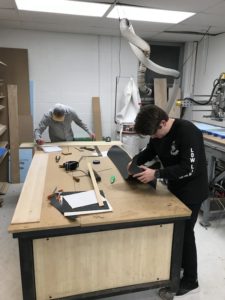
to teach reverse engineering and bring in guest speakers—people like Jason Levinthal of Line Skis and J Skis and Peter Bergendahl, longtime lead engineer for Burton Snowboards.” The finished skis or boards are donated to the student Ski and Ride Club for members to use.
Between the student-run rope tow at the on-campus ski hill and nearby backcountry ski glades cut by the Rochester/Randolph Area Sports Trails Alliance at Braintree Mountain, it’s a great spot for skiers.
This summer, the Randolph campus is getting some new mountain bike trails and RASTA will be opening The Hub—a trail center, gathering place, gear shop and hangout for mountain bikers and backcountry skiers in downtown Randolph.
Even better news? Vermont Tech ranks first among Vermont colleges when it comes to starting salaries for graduates. vtc.edu.
Home Mountain: Killington or Suicide Six. Driving Time from Campus: 30 min. to 1 hour. Enrollment: 1,621 Cool Major: Two-year degree in Mechanical Engineering; classes where you build your own skis.
Featured Photo: At their mid-winter graduation, Middlebury’s “Feb” students ski the Snow Bowl in caps and gowns. Photo courtesy Middlebury College.

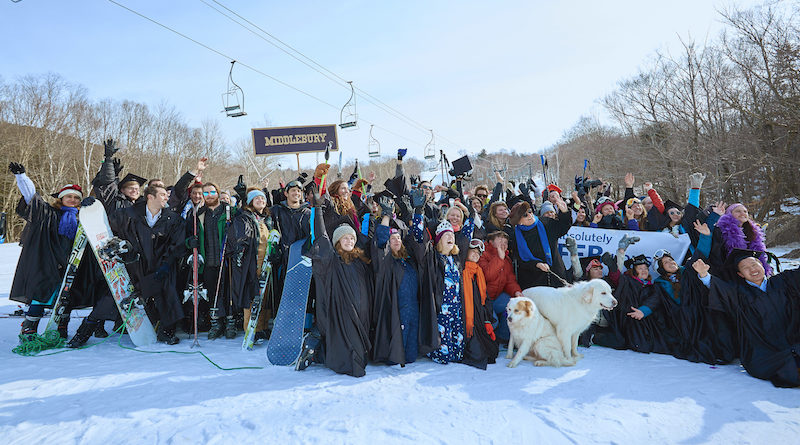
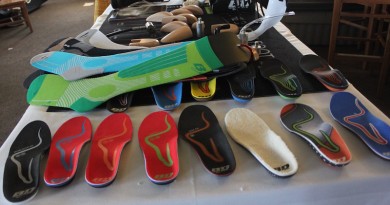
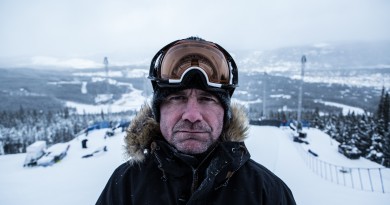

Pingback: Read the Winter Issue! – VT SKI + RIDE